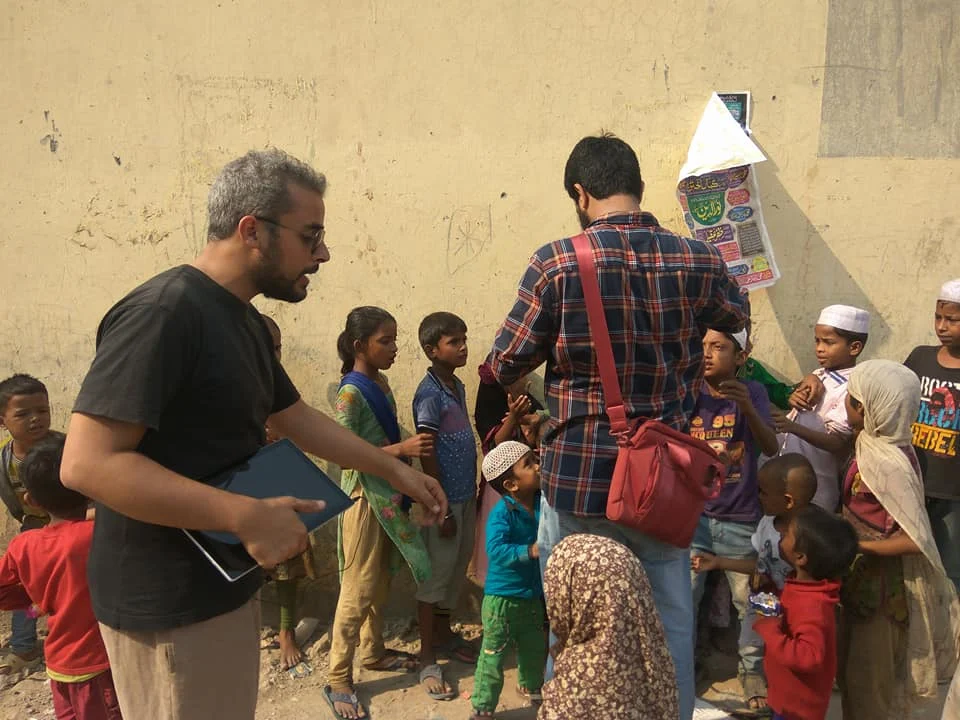Refugee Families Grapple with Mental Health Struggles Amidst Precarious Conditions in India
Team NewsPrism
NEW DELHI- Haris is not yet 18 years old but is beginning to feel quite grown up. After sunset, he leaves home and continues collecting garbage on the traffic-filled streets of Bengaluru until midnight. Often, his mother Farha is also with him.
The life of this young Rohingya refugee has changed drastically in the last few months. He was studying in a school in Delhi, but in May 2023, he had to leave his studies and come to Bengaluru. Haris’s mother was not keeping well. Farah, who had been working as a garbage collector daily for the last ten years to support her family, started having back pain. When this back pain became unbearable, she had to call her son to help, despite not wanting to. Her husband is also not well. He was shot in the leg while fleeing violence in his homeland of Rakhine in western Myanmar, bordering Bangladesh. He is unable to leave the house and work. The elder son, who was separated from her, has gone to Delhi with his family. Now, it is Haris who has to take responsibility for his two younger siblings. Both of them are less than 10 years old.
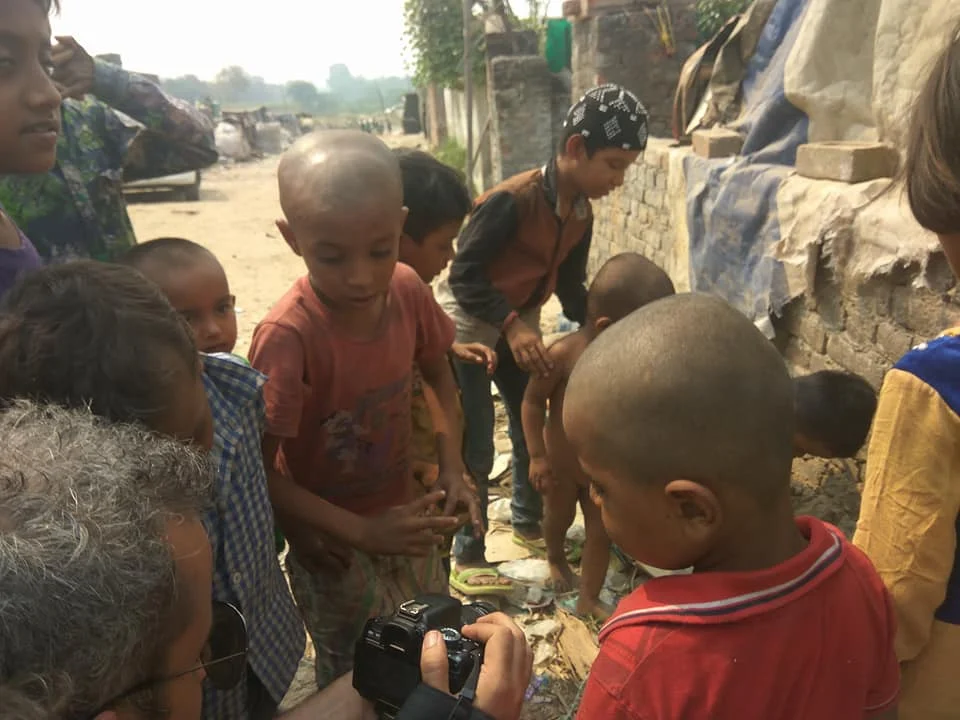
These responsibilities not only affected Haris’s chances of completing formal schooling, but his mental health also continued to deteriorate. When his school friends living in Delhi call, he is embarrassed to tell them that he has now started working as a ragpicker.
“I feel ashamed and sad too. I often ask God why I have to do this work. My parents wanted to see me grow up to be a big man,” Haris said in fluent English. His mother Farha cries over her son’s plight. She wants Haris to study and get a job. But “we can’t die of hunger,” she says. Due to shyness, Haris usually comes out of the house only after evening. He does not want the people around to see an educated boy doing such work.
Chemistry is Haris’ favorite subject, but while taking admission in open school, he had to take commerce. It does not require much in-depth study and is not that expensive either. Haris said, “I don’t know how long I will continue doing this (garbage picking). If this continues, it will not be good for me. I am not even able to talk to my parents about this. I become silent thinking that he will be sad.”
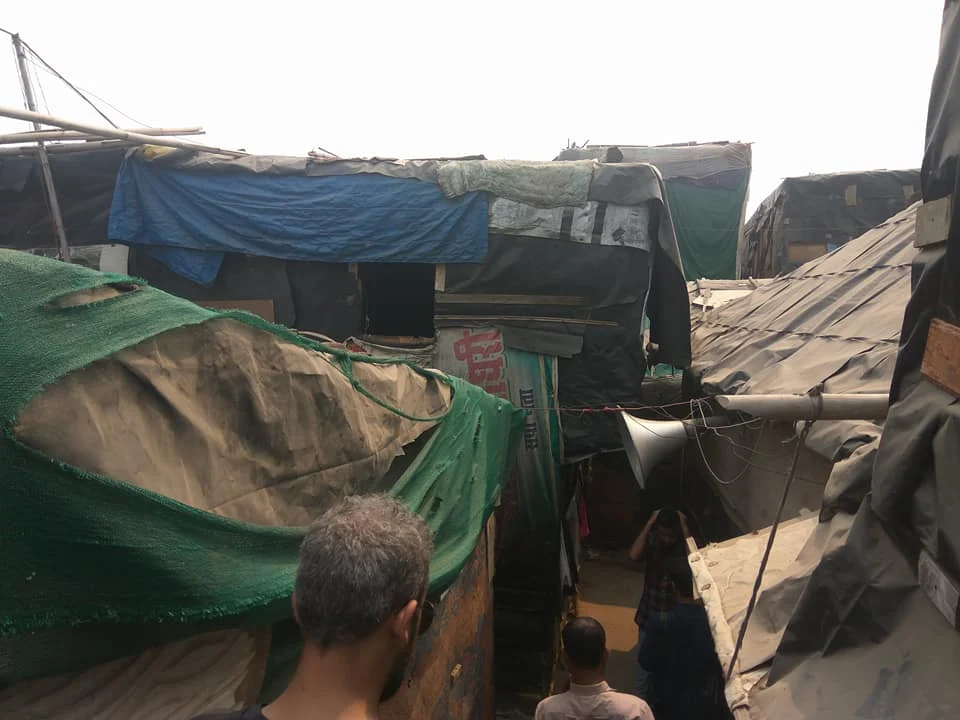
In June 2021, a study was conducted in Cox’s Bazar refugee settlement in Bangladesh on mental health and psychosocial support (MHPSS) provided by Rohingya refugees and host communities. This report by the International Organization for Migration (IOM) revealed that more than 60% of the people felt that the major reason for stress is the struggle for basic needs and survival. Concerns related to education (43.2%), safety and security (23.7%), uncertainty (23%), livelihood (18.9%), poor health (18%), missing home, and death also topped the list.
There are more than 212,000 refugees taking shelter in India. According to a UNHRC report, 22,110 of these are Rohingya refugees, accounting for 2% of the approximately 1.1 million Rohingya refugees living outside Myanmar.
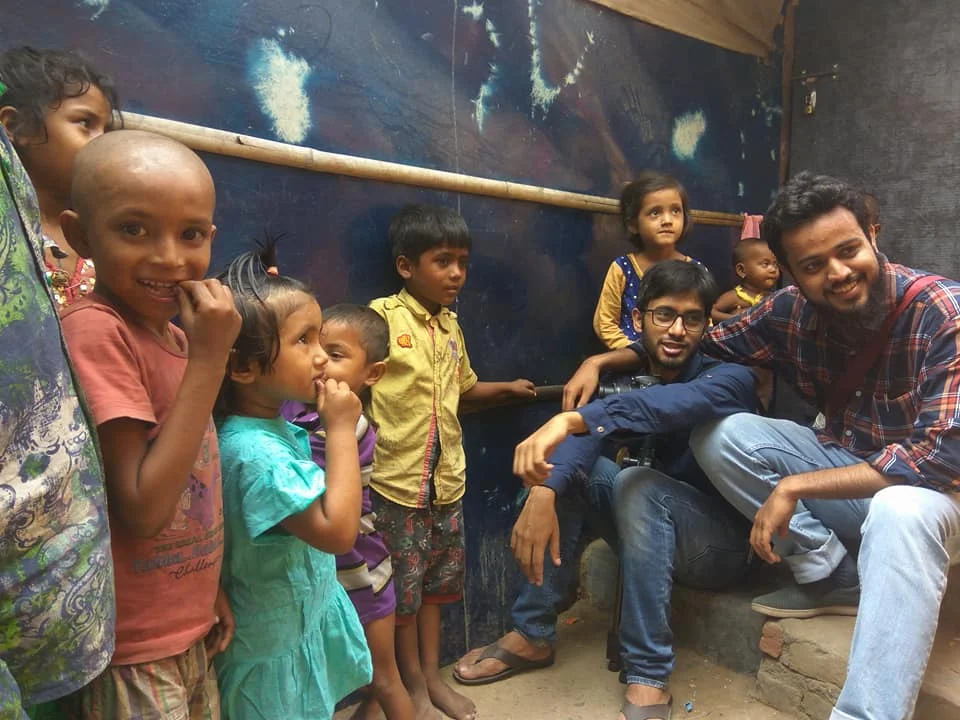
In the second part of our series on access to healthcare, NewsPrism reports from Bengaluru, Delhi, and Nuh on mental healthcare and the challenges faced by Rohingya refugees in India. You can read the first part on Rohingya refugees’ access to health services here.
The Rohingya people are predominantly Muslim and are described as the world’s largest stateless population and most persecuted minority. We met refugees whose family members are struggling with mental illness. And also met some refugees whose family members have been detained and are struggling to earn a livelihood.
Most refugees faced violence and mental anguish before fleeing Myanmar. Many people are also living in fear of detention and being sent back there. Their problems are further compounded by a lack of documentation, which limits their opportunities to stay in the host country. This has affected the mental health of refugees, experts told Clarion India . They need mental health and psychosocial support (MHPSS).
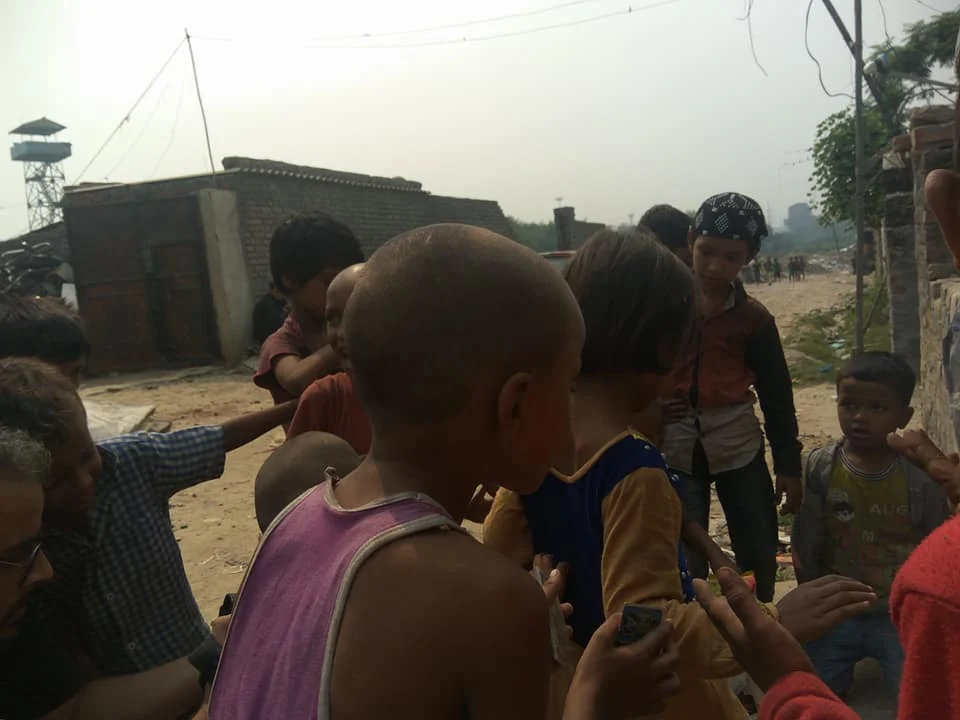
Farooq and Shirin live in their own Rohingya settlements in Delhi and Nuh, 80 km apart. Both of them are always worried about food, health, and salary. But apart from this, both of them have one more thing in common: each member of their family is struggling with mental health problems, and the responsibility of taking care of them lies on their shoulders.
Farooq’s 24-year-old wife Reena* was pregnant. While undergoing treatment at a government hospital in Delhi, they discovered that she was suffering from severe depression with dissociative symptoms. He has to visit the hospital at least once or twice a month. Whenever Reena hears loud noises, she loses her temper for some time. She is unable to communicate properly with Farooq and her first-born child as well as the people around her.
When NewsPrism met him in September, Farooq said, “He has tried to hurt himself several times. His condition is such that I worry about him whenever I go out. She had fainted after hearing the loud sound of firecrackers on Diwali. It reminded him of the violence in Myanmar and days gone by.”
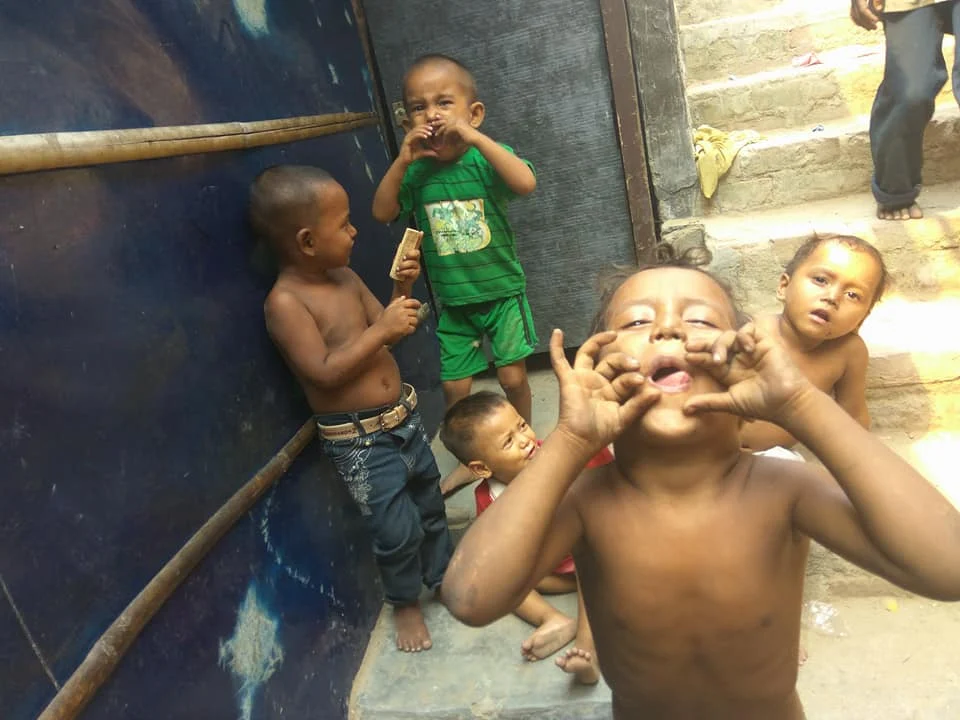
The World Health Organization (WHO) published a review of 129 studies conducted in 39 countries in June 2019. According to the review, among people who have experienced war or other violence in the last 10 years, one in five (22%) suffer from depression, anxiety, post-traumatic stress (PTSD), bipolar disorder, or schizophrenia.
Farooq works as a cart carrying furniture. He borrowed some money from his relatives and left the tented Rohingya settlement and started living in a rented room nearby. The rent is Rs 3,000 per month, more than a third of their wages. He has also been taking medicine for depression for about a year.
“I get angry a lot and feel frustrated all the time,” he said. The doctor said it’s probably because of refugee life.”
Families are able to visit a specialist only a few times a month for treatment. And if they are not able to get free medicines, they are able to buy the medicines they need with the help of UNHCR-NGOs.
“UNHCR and its associated NGOs continue to meet with refugees and provide them with psychosocial counselling,” UNHCR India told Clarion India . He said that almost all refugees registered with UNHCR receive assistance.
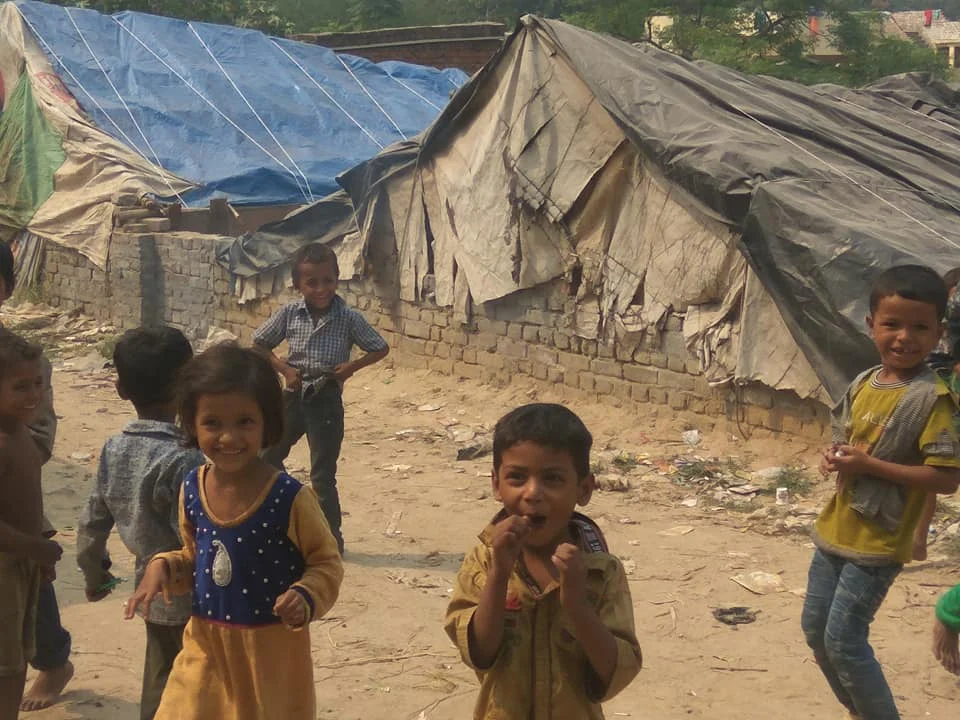
Poor families like Farooq and Reena get Rs 4,000 every month as financial assistance. This money is to meet their medical needs, rent and to buy baby milk for their one-month-old baby. Farooq said, “She has been asked not to feed the child an hour after taking the medicine. This is very difficult for us.”
Shirin is also struggling with similar situations. When NewsPrism met her in Nuh in September, she was trying to calm her mother-in-law. Her mother-in-law was crying continuously (she later died in October). She was mentally disturbed after her son, Shirin’s husband, was detained by the police after the Nuh riots in August. After being detained, Shirin had no information about her husband for about a week. He was finally released on bail in early September.
Shirin said, “My mother-in-law was old and had many diseases. But he had never behaved like this before. She sometimes goes out without wearing clothes. Keeps crying. I am tired of handling them. I have to keep him tied to the cot. Because if I’m not around she’ll go anywhere.”
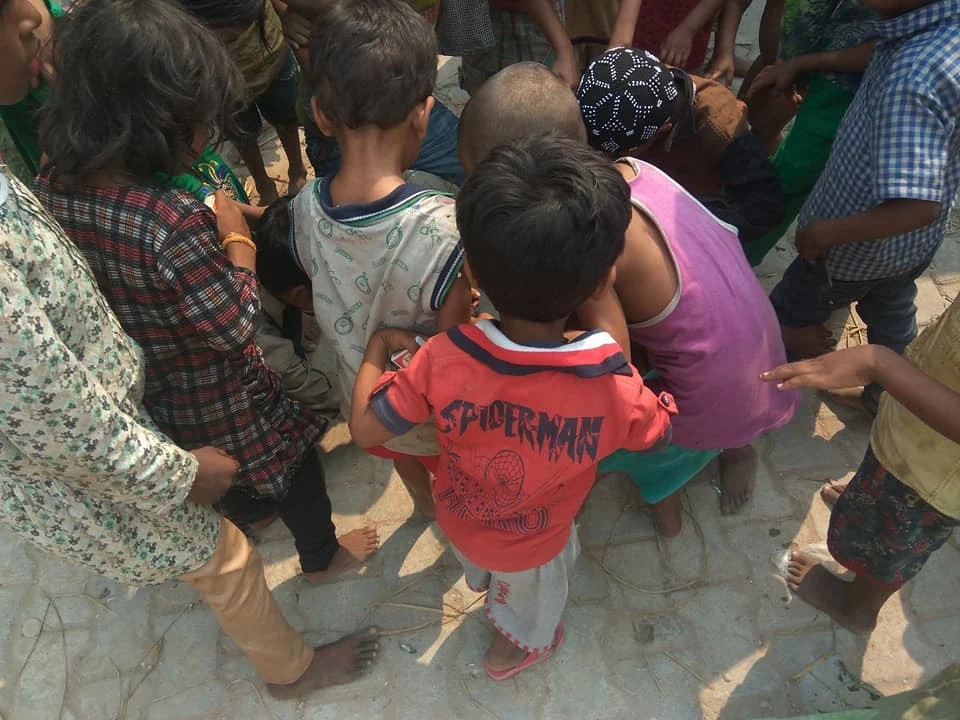
The detention also affected Shirin. Even if she wanted to, she could not tell her young children where their father was. “I remain sad and depressed. I haven’t been able to sleep properly since his detention,” she said.
Her husband Nasir* said that after returning from custody, Shirin started complaining of constant headache and fatigue. They think the reason for this may be stress. Now their fear is of being arrested again and sent to Myanmar. According to him, this is a place where the lives of the Rohingya people are definitely in danger. “My concern before being detained for no fault of my own was to save money for my child’s operation (he is suffering from gastrointestinal disease) at a private hospital which will cost around Rs 35,000,” he said. He adds, “But now I have to pay Rs 45,000 to the lawyer, and that’s another worry about getting arrested again. I don’t want to be deported. I would rather stay here in jail.”
Similar concerns are in the mind of Asif, who lives a few kilometers away from Shirin and Nasir. His 14-year-old son Javed was released from a child care center in August after being detained for 40 days following the Nuh riots. For now, Asif is relieved that his teenage son is with him, but the fear of Javed being arrested again remains. Asif claimed that he was picked up on false charges. Asif said, “My wife and I are always worried these days. We are scared and stressed too. But we are refugees, what can we do?”
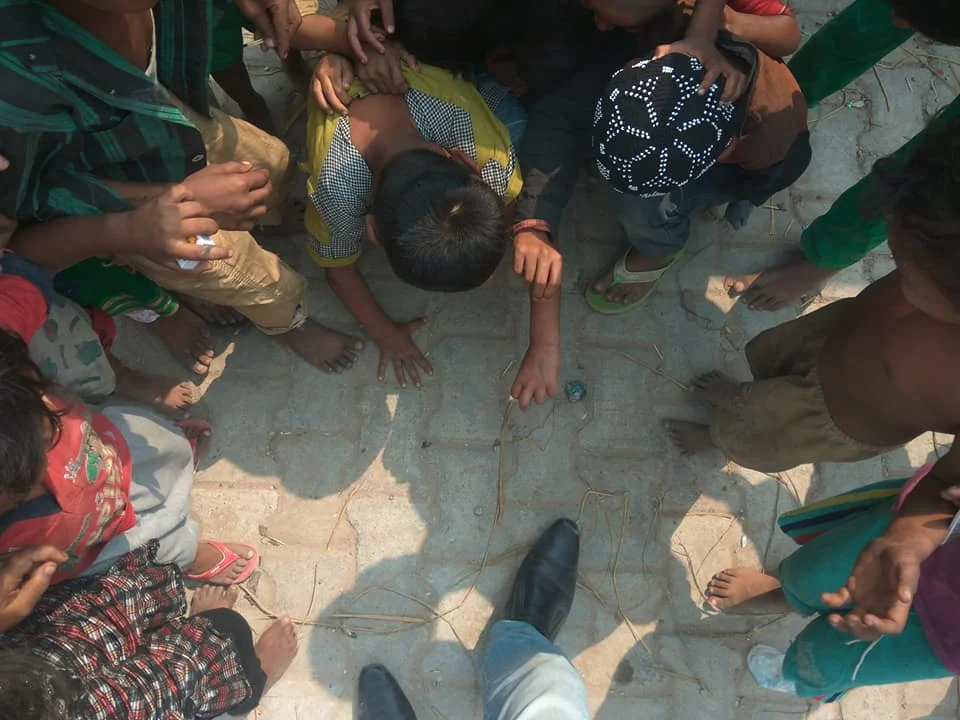
We reported in the first part of this series that the central government considers the Rohingya “illegal immigrants” who “are a threat to national security.” This further complicates the matter as India is also not a signatory to the 1951 UN Convention on Refugees and the 1967 Protocol. This protocol defines the rights and protection of refugees, and it is on this basis that UNHCR works.
A December 2021 paper by Nivedita Sudhir and Debanjan Banerjee states that despite essential information, estimates of mental disorders fail to address the more complex multidimensional psychosocial challenges of the Rohingya. These cannot be viewed through a ‘medical’ lens alone.
A team of Rohingya researchers trained by the human rights network Fortify Rights conducted a study in December 2020 in the Cox’s Bazar refugee camp in Bangladesh. According to this Participatory Action Research study, “Ongoing human rights abuses and abuses with impunity in Myanmar and Bangladesh have caused severe and long-term psychological harm to the Rohingya refugee population”.
About 89% of Rohingya participants surveyed reported symptoms of depression; 84% reported emotional problems; and 61% reported symptoms suggestive of PTSD.
The unique circumstances of stateless communities increase the risk of human rights violations and lead to precarious situations. However, these communities have been struggling to establish their identity. Clinical Psychologist/MHPSS professional Stella Dermosoniadi has worked with many refugees, including the Rohingya in Bangladesh. He said, “…refugee stateless persons and communities often feel that they “don’t belong” because they are not accepted. There is no place for them in states, legal institutions, and the media.”
Reena has seen violence and death in Myanmar. All these incidents happened before she fled Cox’s Bazar with her family and then came to India. Bullets and bombs, she said, have created fear in her heart. They often feel as if someone is coming to hurt them. “Even small sounds like an ambulance or people screaming make me nervous.”
She has always wanted to pursue higher education. She also helped teach the Burmese language to Rohingya girls. She tried to continue her education in India, but despite better results in class nine, she became unwell and collapsed unconscious in the examination hall while taking her class ten exams.
Reena said, “I have been trying to fulfill my dreams for a long time. But nothing has happened till now. We are called infiltrators and it affects me. I feel that the same incidents in Myanmar Will be repeated here also. We are humans, not animals.”
Bipasha Biswas, a faculty member at Eastern Washington University’s School of Social Work who has worked with refugee communities in the US, including the Rohingya, said isolation is a way of coping with mental issues that can be seen in those who have. Have suffered severe mental stress, such as survivors of sexual abuse. She adds, “It is a physical manifestation where your brain starts denying certain memories of the traumatic event. Isolation is not always malicious, but it should not be made into a mental illness for which a person is heavily medicated.
The structure and expenditure of mental health facilities in India have been quite low. A budget analysis by the Center for Mental Health Law and Policy Indian Law Society-India Mental Health Observatory (CMHLP) said the total budget outlay for health and related programs for 2023-24 was 2% of the central government’s fiscal outlay. The mental health budget of Rs 919 crore is just over 1% of the total budget of the Ministry of Health and Family Welfare.
Clarion India , in a report on the economic impact of mental health care and the need for financial risk protection for families with members with mental illness, pointed out that if a member has a mental illness, a family will have to pay for his or her health care. But an average of Rs 2,115 has to be spent every month. This is 18.1% of the family’s monthly expenditure.
In response to a Right to Information petition filed by NewsPrism in October on mental health care support for refugees, the MoHFW’s mental health department said the information was to be treated as “nil” and the petition transferred to the home ministry.
All India Institute of Speech and Hearing, Mysore is one of the departments/institutions of the Ministry to which the petition was forwarded. The department reported that its Clinical Psychology Department had “treated all patients who required such services”. It did not say anywhere whether refugees were specifically included among those patients or not.
At present, psychosocial counseling is being provided in India with the help of NGOs associated with UNHCR. Who have their own limitations in working. The informality of Rohingya housing and work, and constant surveillance by authorities, place pressure on this community. Although they don’t talk openly about mental health care and needs, experts say they need such help.
Aqsa Sheikh, a medical doctor and community medicine specialist who treats Rohingya refugees in Delhi NCR, said there is no better environment to discuss these issues because even when there are symptoms of depression like hopelessness or helplessness, it is considered a fight for survival. Is. She adds, “This is generally seen as something a refugee is facing. It hasn’t really been explored…. And when they go to primary health care providers, they have very little knowledge and empathy about them.
‘Azadi Project’ is a non-profit organization providing leadership, livelihood skills, and psychological and social support to women from refugee and marginalized communities
in Delhi. They are working closely with Rohingya women, young children, and teenage boys on mental health.
When mental health becomes serious, treatment becomes a priority for refugees, said Priyali Sur, founder, and executive director of the Azadi Project. Common daily concerns include access to toilets. But bringing everyone together – especially men from the Rohingya community – to discuss mental health is a difficult task.
“Every time we try to gather men, they don’t come,” Sur said. “So we are engaging young boys and getting them to talk about toxic masculinity and gender-based violence.” “They are encouraging. They are very keen to know it. It is difficult to change attitudes even among women, but conversations are taking place.”
Her group includes women, and they have spoken openly about anxiety, depression, and their mental anguish. “At least within the group, I haven’t seen them shaming each other for it,” Sur said. If she is embarrassed outside about this, I don’t think she will be able to talk openly about it.
Efforts have been made to involve people belonging to the Rohingya community to bring awareness about mental health and psychosocial support. Nilofar* is a Rohingya refugee in Hyderabad. She works as a counselor in an NGO that works with refugees. She has been in India for almost a decade and, as the eldest child, has been helping her younger siblings for many years through her work as a teacher, translator, and now consultant.
Since 2022, he is part of a team that includes 10 barefoot counselors and 10 health volunteers and mobilizers. She and the rest of the Barefoot counselors have been trained by the NGO in first aid counselling, dealing with conflict situations, and gender-based violence, counseling married couples, etc. She goes door to door and connects with people in the community.
Neelofar said, “We visit at least 20 houses every day. In the beginning, it was difficult to talk about mental health issues. Now we have a better rapport. Many women have problems related to their relationships and health. ”
As a barefoot counselor, he has solved around 70 cases. Most of these cases were related to gender-based violence.
Gradually attitudes are changing and more women are being allowed to work. There has been a decline in the cases of home deliveries, but still, 20 percent of deliveries are taking place at home. She says, “This is the result of our hard work. We tell them about hygiene and menstruation. “It is also part of mental health support to change attitudes and help women speak out.”
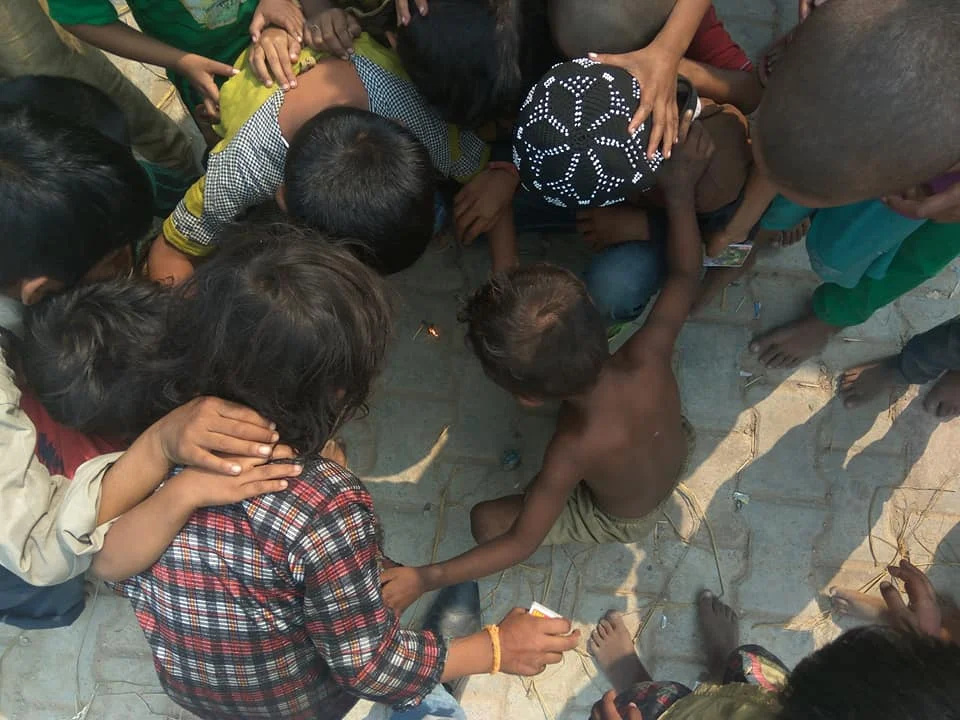
In Bengaluru, Haris said that no one asked about his mental health. But if you get help then it will be good. But he is also conscious of the lack of awareness about such matters within the community.
Experts said it is important to support refugees to tell them about their problems. This requires a sympathetic attitude of the host communities. Mental health support has to be integrated with the primary health care system. It is also important to strengthen and mobilize the capacity of the refugee community. An example of this is the services provided by Neelofar and her associates.
However, not everyone is able to put into words what has happened to him or what mental pain he is going through. Biswas said that due to this, some people start experiencing symptoms like anxiety and depression, while others face physical problems.
He said, “It is important that the host community welcomes refugees as true neighbors, and not in playing the role of a savior. Mental illnesses like depression are considered a matter of shame in India.”
There should be easier access to services, creating a framework to deliver services to refugees, as well as linking government and NGO services and government policy on mental health policies.
“It has been proven that most individuals recover within their communities if they have access to services, community networks, and support,” Dermosoniadi said.
Farooq realizes that he and Reena are not the only ones in the community who are depressed and in need of health services to deal with mental issues. “Some people can deal with it and some can’t,” he said.

